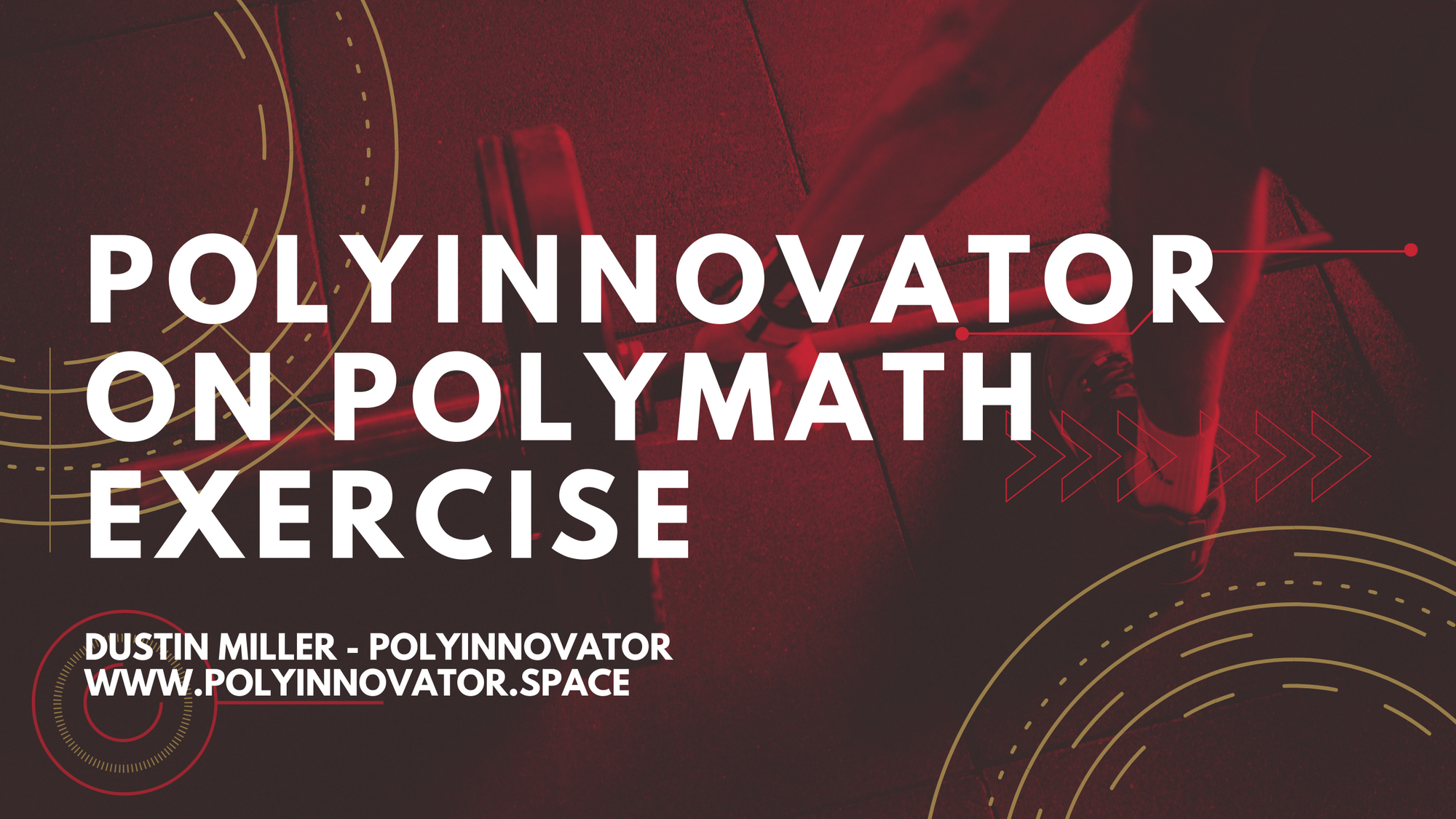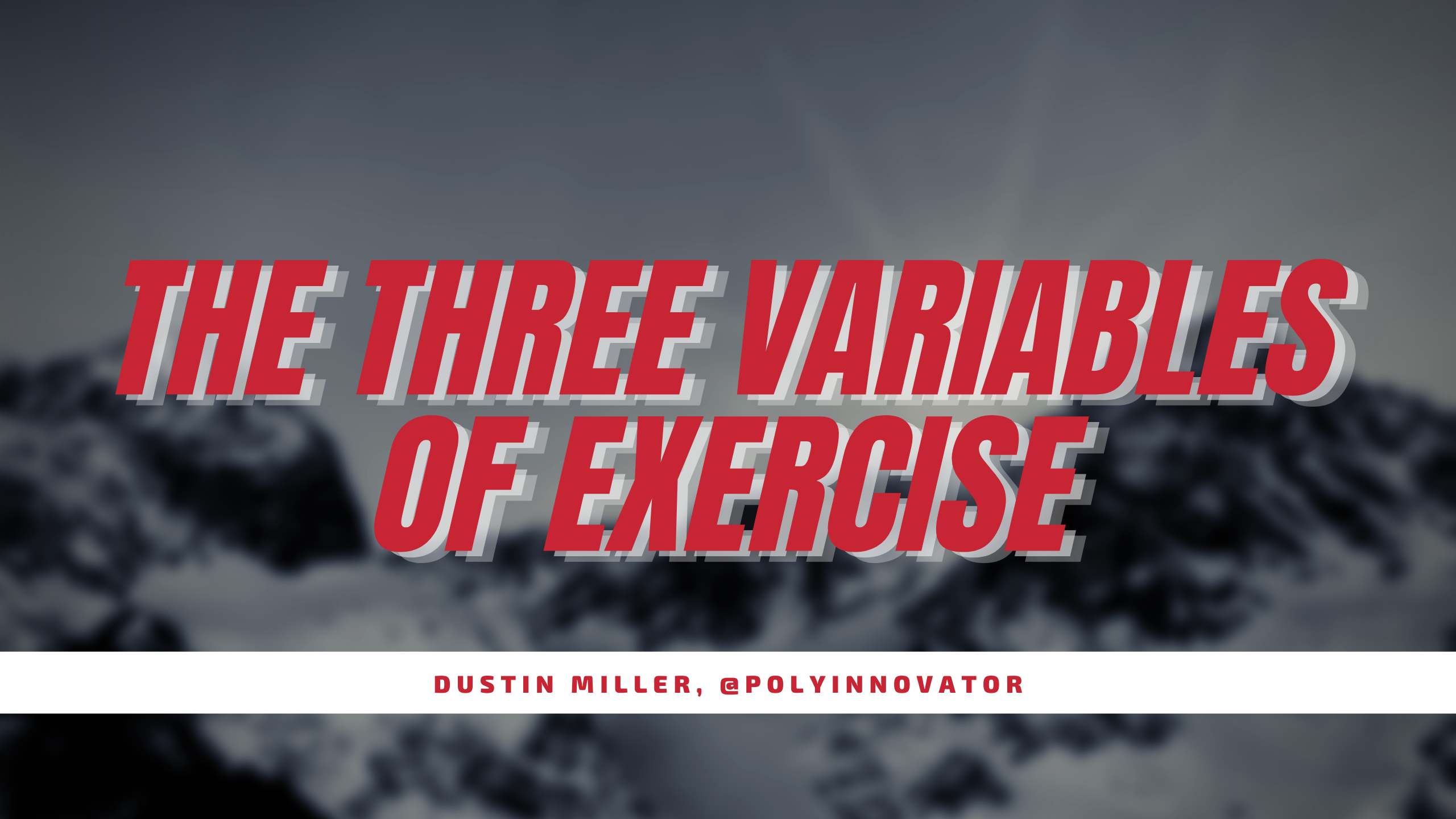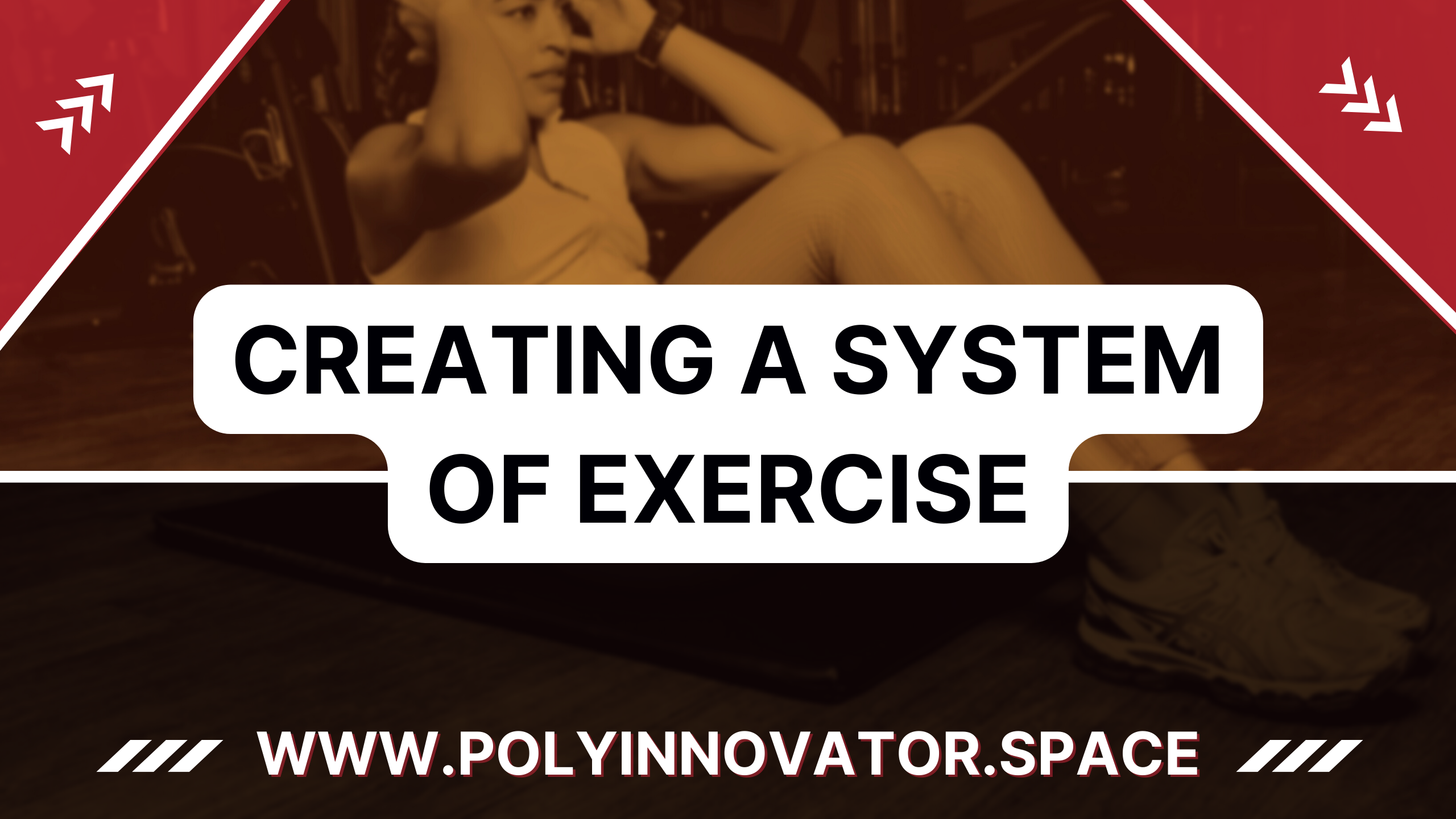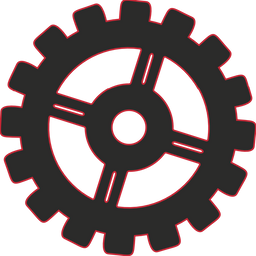I've been training myself for about 12 years, and teaching for 10 or so. Personal training for a few years to top it off. I mention those metrics because it isn't very long of a time in the grand scheme of things.
In that time-span I have spent countless hours teaching myself the tools of the trade, and learning how to keep pushing the body. From personal training books, to biohacking, and even just simple nutrition and supplementation.
That is great and all, but it means nothing without a solid system to build upon. I created my Four Pillars Philosophy around the Mind, Body, Spirit, and Emotions. Four fundamental aspects of life, and my main Pillar that I view the world in has been the physical body.
When I go to the gym I find myself exploring new ways to push myself, and seeing what things I have to work on to keep improving. That means a high level of accountability, which I don't always have. However making sure I make up for it the next time I venture into the iron kitchen.
Here are my blog posts around exercise:

I highly recommend reading this holistic post first:

Why do you need a system?
We do not rise to the challenges we face, but rather fall to the height of our habits and systems. When the quarantine hit my habits completely faltered, as I relied on being at the gym on a regular basis to workout. However my system of exercises for the most part did not require a gym to pursue (only to the degree of power), but for most things they were dumbbells or calisthenics that I could do at home.
Saving me a ton of time of getting back on track, where many people took over a year, it only took me a few months to get into a new habit. It did take me a year to get back to my strength level, but that was also because my goals were different so it took more time.
By having a system your habits can be built upon it, and you rise in level when your systems adapt to the new challenges. If you have a new goal, health situation, life situation, or time allowance then your system can adapt to the new endeavor.
Why pursue self-development?
On the very first interview I went on the host asked me that question, and I was so awestruck by the concept that I had a hard time answering. This is because it is so fundamental to our human existence, that I couldn't conceive of a person not doing so. Every skill, hobby, or career we pursue takes some sort of self-development or growth to accomplish.
I guess in some cases people may stay stagnant, but in any endeavor you need to pursue your own development to be successful.
You have to level up in some way in order to live your life. From my understanding we can never maintain where we are, whether that is physically, or in life. You will only ever go up or down, make progress, or regress. It may only be 1% either way, but I would suggest making that 1% progress each day.
How can you continuously level up?
In the subject of exercise and physical development the personal training world talks about three levels for exercise.
- Balance
- Strength
- Power
In that order in particular, so you can think of the level one as Tai Chi, Isometrics, etc. Yoga and Ballet fit into both #1 and #2, but strength is often associated with weight training, calisthenics, swimming, even cardio to a degree.
Then you have power, which is that of explosive movement in nature, meaning when you sprint across the field to run from a predator for example. Lifting a huge weight swiftly (power or Olympic weight lifting), or highly competitive sports.
You actually need all three for a fully capable body, and that is where most people falter. Some think that their particular background is enough, but in my professional opinion you need a balance of all three (not to be confused with the level 1).
You need the balance and coordination, the strength to move in a variety of ways and lift objects, and the power to challenge the body and heart. All three have their purpose in life.
How can you push yourself to break past plateaus?
Depending on which variable you are changing for that particular workout, then you would just simply increase that variable in a substantial way.
No need to know what they are just yet, as I want you to understand how they play into the bigger picture. When you are faced with a challenge, whether it is a certain number of reps, or perhaps a certain weight, or even a distance to cross. There is this mental gap of where you are, and where you need to get to be.
"When your mind is telling you you're done, you're really only 40 percent done."
-David Goggins
As Goggins puts it when you reach a certain point, there is this mental thought of I am no longer able to do more. However our bodies, and minds even, are far stronger than we can imagine. When you reach that breaking point in the aforementioned challenge, when you reach your "max rep" or "farthest distance". We think that we can't do anymore, but I can personally attest that this is far from the truth.
You have so much more potential to move past that point, that you can achieve a far greater goal than you initially thought. You just have to choose to do it, and develop the grit to do so.
What are the variables of exercise?
Alright I mentioned the reps or distance, but that is because those are the measurable things that you can keep track of when exercising. It isn't always that simple, but in MOST workouts you will be focusing on just one variable at a time. Those variables are:
- Speed
- Intensity
- Volume
I am a big fan of volume, as I gained my deep strength from doing 100's of reps. By doing more reps, or time (depending on the exercise), then you are able to master the form a lot quicker. Once you reach a higher standard of form, then you can work on changing the speed or intensity (such as adding more significant weight) to your exercises. At which point unless you get lazy or go too far, then your form will stay strong when you are pushing to new limits.
Your speed is another area that a lot of people overlook. Most studies in the exercise world point to either fast or slow to be the ideal for growth, or to get into the state of muscular-hypertrophy.
By going slow you push for a longer time under tension, which is great for endurance. By going fast you can activate the more fast twitch muscles, and work more towards power to a degree.
Lastly, there is the intensity, and while this is often the FIRST thing people think of; I would argue it should be the last thing you change when you are just starting out. The increase of the weight, adding a different angle to a current exercise, or creating some sort of lopsidedness to your workout (i.e. an uneven push up).

Three Layers, Three Variables, Three Exercises
Listen, this is a simplification of a skill that you need to do more than just three exercises to master. However you have to start somewhere, and you also need data to improve on where you need to go next.
By taking the level of exercise you are going for, times that by the variable, and then add the factor of time involved.
Do not underestimate the amount of progress you could make doing a level you might not normally work on. I've seen super buff people who focus on power, go and take a strength or even balance based class such as Yoga; Then get their ass handed to them because they were working muscles they never touch with their respective level.
Not to mention the need for people in the other direction to really push themselves to gain strength, or even push for power at times. Maybe not often, but their cardiovascular system will thank them for it in the future. Not to mention you need both strength and power to gain a balanced muscle structure.
![Official Website for Dustin Miller PolyInnovator [LLC]](https://polyinnovator.space/content/images/2025/03/polyinnovator-logo-2024.png)












